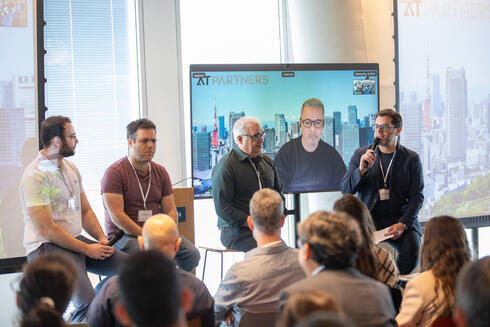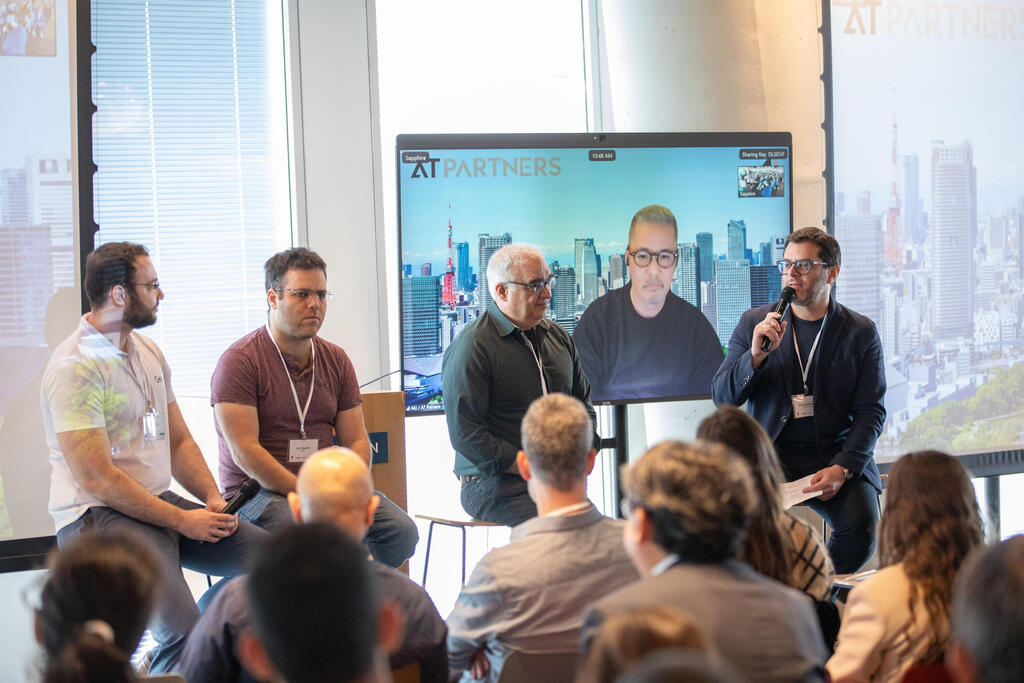
“In Japan you should invest in trust as much as you invest in your product”
Japan's economic resurgence stands in contrast to its demographic challenges and shifting market dynamics, prompting experts to explore its implications at the fifth annual "Big in Japan" event held in Tel Aviv
The recent surge in Japan's economy has sparked widespread interest, as the nation experienced its first interest rate increase in 17 years, coupled with a 34-year record high in the Nikkei225 index. While global attention often focuses on economic powerhouses like the U.S. and China, Japan's economic resurgence is reshaping the landscape. However, this prosperity stands in contrast to Japan's demographic challenges and shifting market dynamics, prompting experts to explore its implications at the fifth annual "Big in Japan" event held in Tel Aviv.
Amidst discussions on Japan's economic transformation, the event delved into key topics such as Japan's mixed economy, demographic decline, and the importance of fostering trust in business relationships, particularly in the Japanese market.
1 View gallery


Izik Lavy (from left), Or Danon. Tal Cohen and Guy Lachman. On screen - Nobuyuki Akimoto.
(Photo: Guy Levi)
Hosted by Sompo Digital Lab Tel Aviv, Pearl Cohen law firm, Drive TLV, and the Japanese-Israeli VC fund Aristagora, the conference explored Japan's increasing influence on the global economy and high-tech industry.
According to Professor Nissim Otmazgin, Dean of the Faculty of Humanities (Department of Asian Studies) of the Hebrew University, Japan's economy presents a mixed picture. "Japan actually has a mixed economy, meaning there are some sectors within the Japanese economy which are highly successful. Those sectors are usually export-led. Companies with global outreach are super successful. Take, of course, Toyota, not only Toyota but also thousands of its subsidiaries. Take industries such as chemistry and robotics. Japan has a lot to offer to the world, and those successful companies are pushing the economy forward. On the other hand, you have many, I wouldn’t say failed sectors, but conservative sectors in which the focus is domestic."
Otmazgin also pointed out Japan's demographic challenge, with a shrinking population and low birth rates threatening the economy's long-term sustainability. To address this, he advocated for opening Japan's doors to immigration to attract qualified workers and support its aging population.
Yinnon Dolev, CEO of Sompo’s Digital Lab Tel Aviv, stressed the importance of trust in business relationships, particularly in the Japanese market. "You must build trust and prove your trustworthiness - make sure your partner sees you as a person they can learn from and rely on. So, my best tip to Israeli entrepreneurs is: invest in trust at least as much as you invest in your product when it comes to the Japanese market."
The panel on Israel-Japan tech collaboration and investments provided insights into the current situation and prospects. According to Nobuyuki Akimoto, co-founder and managing director at AT Partners, Japanese investments in Israel remain stable, despite fluctuations caused by events like the Israel-Gaza war. "Japanese investments in Israel in 2023 amounted to about $662 million, compared to $1.5 billion in 2022."
Tal Cohen, founding partner at Drive TLV and Next Gear fund, emphasized the resilience of Japan-Israel business ties. "The impact of the war will be short-term. Because Japanese business culture is heavily relationship-based, I feel we have a better chance of overcoming any war-related issues."
Or Danon, CEO of Hailo, shared his positive experiences in Japan, underscoring the importance of face-to-face interactions in mitigating concerns and reinforcing long-standing relationships. "The best decision I made was to go to Japan. Even before October was over, I traveled there to meet my associates and clients because assessing the risks associated with working with Israeli companies at this time is very challenging from the outside."
Izik Lavi, CEO of GeoX, highlighted Japan's potential for startups, compared to larger but more competitive markets like the U.S. "In my field, which is insurance, working in a large market such as the U.S. is challenging because they have around 2,500 insurance carriers. However, in Japan, there are only 3 carriers, but the market size these three cover is about 40% of that of the U.S."
Moderator Guy Lachmann of Pearl Cohen emphasized Japan's immense potential for Israeli tech companies, despite challenges posed by geopolitical events. "Japan offers an outstanding opportunity for Israeli tech companies and the potential is immense. Those Japanese investors and corporates who will not exploit these market conditions will be sorry for a missed opportunity."













